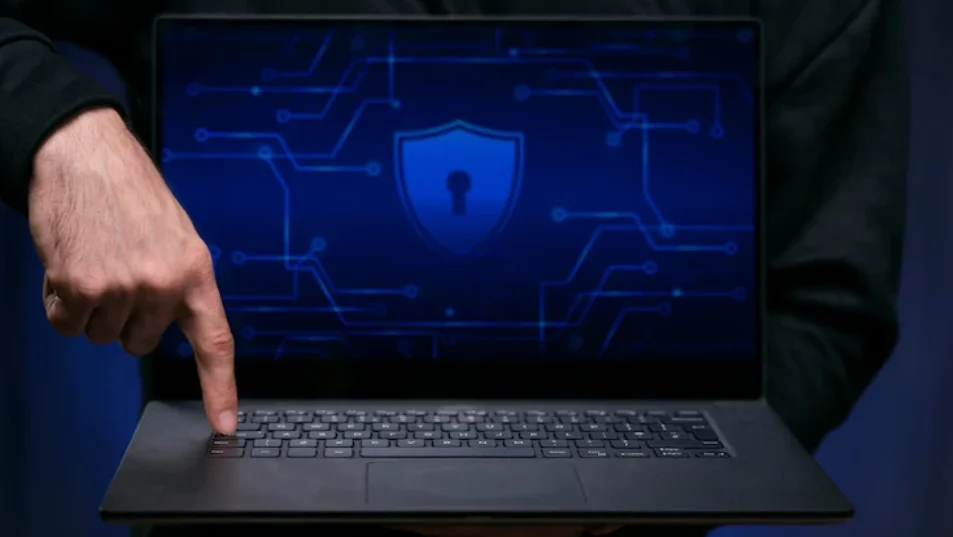Windows is one of the most widely used operating systems in the world. But with its popularity comes increased attention from cybercriminals. Therefore, securing your device is necessary to protect your digital life.
Why Windows Devices Are a Prime Target
Windows currently holds millions of active users across the globe, which creates a massive area for hackers to infiltrate. Due to their successful attack rate, Windows vulnerabilities remain the preferred target for cybercriminals.
Some of the most common threats include:
- Unpatched vulnerabilities – if you fail to update your system, hackers can exploit them.
- Malware – trojans, spyware, and keyloggers often look like legitimate software or email attachments.
- Phishing attacks – windows users are targeted with fake login pages or email links designed to steal passwords.
- Remote Desktop Protocol (RDP) attacks – hackers try to gain remote access to Windows machines with weak or stolen credentials.
- Ransomware – once inside your system, attackers can encrypt your files and demand payment to restore access.
How to Protect Your Windows PC from Cyber Threats
Practicing cybersecurity measures is your greatest shield against hackers. Here are the few things that require your special attention to stay safe:
Use a Virtual Private Network for Windows
When you connect to the internet, your IP address and other data are visible to websites, advertisers, and malicious actors. Nevertheless, you can significantly reduce surveillance by investing in a reliable virtual private network (VPN). A VPN for Windows encrypts your connection and masks your location. It’s especially useful when using public Wi-Fi or accessing sensitive accounts. A VPN also helps prevent IP-based tracking and targeted cyberattacks.
Update Your System and Software
The exploitation of Windows systems often happens because of outdated software. Microsoft regularly distributes security patches to address recently discovered vulnerabilities. Your system will remain vulnerable if you skip or postpone these updates. The easiest way is to enable automatic updates and install security patches on all your third-party programs.
Use Antivirus and Anti-Malware Tools
Your computer needs a reliable defence system against all types of malicious software. You can increase your protection by integrating antivirus or an anti-malware tool focusing on advanced threats. Search for tools that perform immediate scanning alongside automatic software updates. They also need to show exceptional results in third-party testing facilities.
Enable a Firewall
Windows includes a built-in firewall, and you should make sure it’s turned on at all times. A firewall acts as a barrier between your device and untrusted networks. It blocks unauthorized access and suspicious traffic. For advanced users, third-party firewalls can offer even more customization and protection.
Create Complex Passwords
Windows users continue to put themselves at risk of hacking because they use weak or re-used passwords. Create complex passwords for all your accounts while keeping them out of your browser’s storage system. A password manager can be helpful to store all of your passwords so you won’t forget them. Whenever possible use two-factor authentication (2FA). It adds an extra verification step during the login process.
Be Careful with Downloads and Email Attachments
Software and applications should come from official websites, app stores, and trusted platforms. Avoid installing free software that asks you to disable your antivirus.
Phishing emails contain either malicious attachments or dangerous links. If you click on those links, the action can trigger malware installation and unauthorized access to information. Refrain from clicking when something appears suspicious, even if the source seems familiar. Always double-check to confirm that the email you’re getting is from a reliable source.
Create Regular Backups
Even with the best security measures, no system is immune to attacks. Keep regular backups of your files in a secure cloud storage service or on an external drive that’s not constantly connected to your PC. This way, if you ever fall victim to ransomware or file corruption, you won’t lose everything.
Staying Cyber-Safe Starts with Awareness
Cyber threats are evolving, but staying safe on your Windows PC doesn’t have to be complicated. With the right habits and tools, you can keep your data protected and your device running smoothly. Stay informed on the newest cyber threats and keep up with safety measures to block them from targeting you. A little effort goes a long way when it comes to your digital security.

